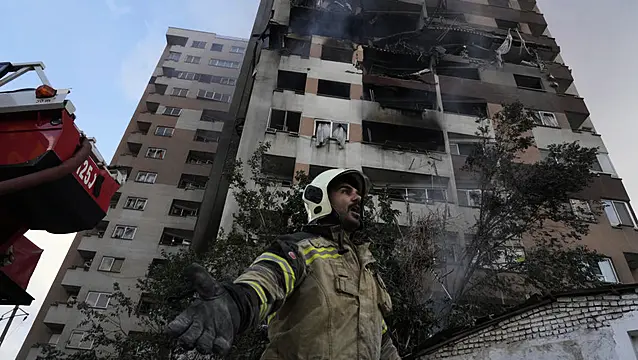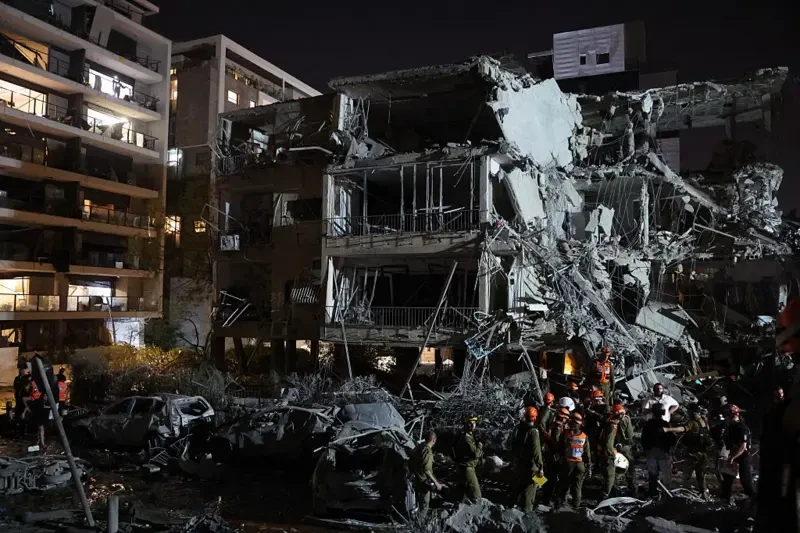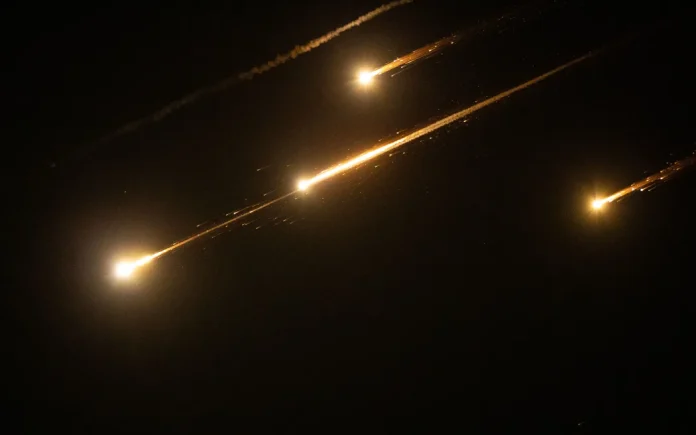Iran launched a major missile attack on Israel early Saturday, striking back after Israeli airstrikes hit key nuclear and military sites. The overnight exchange marked one of the most direct confrontations between the two countries in years.
Israeli cities hit, dozens injured
Iran’s Revolutionary Guard said it fired several waves of ballistic missiles at military targets in Israel. But many missiles landed in civilian areas. In Tel Aviv, a high-rise was damaged. In Ramat Gan, an apartment block was partially destroyed. Emergency services fought fires and rescued people from damaged buildings.
The Israeli military said it intercepted most of the missiles, but a few struck populated areas. Explosions echoed over Tel Aviv and Jerusalem. At least three people died, and more than 40 were injured. Hospitals treated patients for shrapnel wounds, smoke inhalation and shock. Some injuries were critical.
Israeli media showed smoke trails and air defence systems intercepting missiles. Authorities asked civilians to stay near shelters until the danger passed.


Iran responds to strikes on its nuclear programme
The missile attack followed Israeli airstrikes on Friday that hit Iran’s Natanz and Fordow nuclear facilities, among other sites. Iran reported 78 deaths, including senior commanders and nuclear scientists. Over 320 people were injured, most of them civilians.
Iran’s Supreme Leader, Ayatollah Ali Khamenei, accused Israel of starting the war. He said Iran’s response would be strong and complete. “The Zionist regime will not escape unharmed,” he declared. Iran’s UN ambassador also warned of further action if Israel continued its attacks.
Global leaders call for de-escalation
Israel’s Defence Minister Yoav Gallant said Iran crossed a red line by firing on civilian areas. He promised continued military action to protect Israeli citizens. Iran claimed it only targeted military sites.
The United States helped intercept some missiles but did not share details. Leaders from the EU and United Nations urged both countries to avoid further violence and return to diplomacy. UN Secretary-General António Guterres wrote, “Peace and diplomacy must prevail.”
The exchange has raised fears of a wider conflict. Both sides have shown a willingness to escalate, and the situation remains tense.
